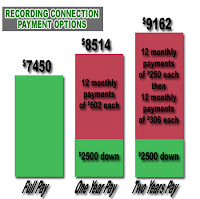Listen to the Revolutionary Bongiovi Acoustics Digital Power Station Technology is a patented and unique digital signal processing method that substantially enhances sound quality in playback devices by compensating for deficiencies in usable frequencies, audio components, environments and room acoustics.
This Digital Power Station, embedded in a computer chip, is the

first of a new generation of digital audio signal processors that can be programmed to reproduce studio-quality sound in virtually any audio device. Using a combination of filters, EQ and gain amplification, it achieves total linear control over the entire audio spectrum. What this means is that it allows frequency-specific amplification for the desired results in a playback environment, and it does a great job maximizing the potential of speakers that are factory made.
Using a chip called the Digital Power Station, the KD-S100 scans and extends the frequency response and audio spectrum of various kinds of audio recordings.
This is the kind of cool stuff you learn about when you work with a mentor at the Entertainment Career Connection's New York Music Recording School. When you are learning from someone who is actually in a professional environment, you get to go to all kinds of trade shows, because professionals get invited - and they usually bring you, their student, along.
"While I was looking for the right environment to study the music recording business, I found turn and burn schools that didn't seem real," said Tommy in his Recording Connection video. "They want $40k and promised a magical career, but it wasn't real. The Recording Connection is real because it is reasonably priced and it offers one-on-one quality programs to teach you everything you need to know from studio sets ups to the most advanced technology that is out there."








